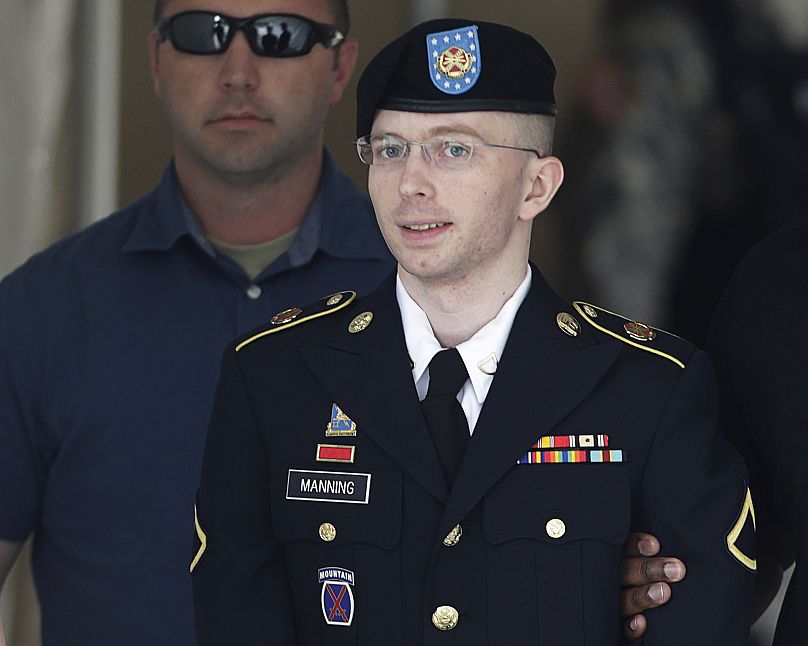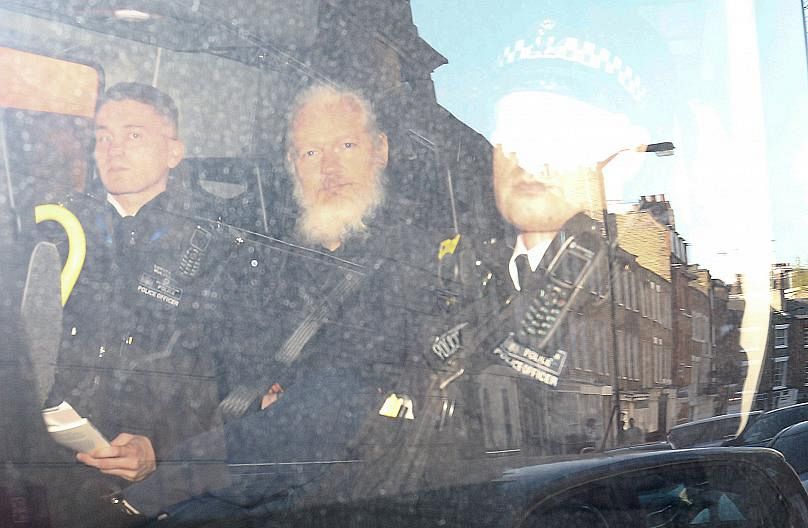The founder of Wikileaks was found guilty of skipping bail by Westminster Magistrates Court on Thursday afternoon - after having been dragged out of London's Ecuadorian embassy earlier on. However, the US Department of Justice made the extradition request that prompted his arrest.
Over the past decade, Julian Assange has become something of a thorn in the side of the United States, particularly for their military and intelligence services.
The founder of Wikileaks was found guilty of skipping bail by Westminster Magistrates Court on Thursday afternoon - after having been dragged out of London's Ecuadorian embassy where he had been living for the last seven years.
However, the US Department of Justice made the extradition request that prompted his arrest.
Euronews looks at the history of the spat.
2010: First massive information leak
Things began with the first series of leaks released by Wikileaks back in 2010.
250,000 American diplomatic letters and 500,000 classified defence documents flooded the media and social networks from November 2010 to September 2011.
The boldest revelations were about US military operations in Iraq and Afghanistan which detailed, among other things, reports of serious military abuses.
The revelations served to highlight the obvious dangers for intelligence officers in the theatre of war, and caused the launch of an investigation into the field operations by the United States.
Fairly quickly, an army analyst formerly named Bradley Manning (above) was identified as the main source of the leak.
Assange is suspected to have conspired with Manning in order to find the password for the computer system that hosted thousands of confidential documents.
In 2013, Manning - who underwent a sex-change operation and is now called Chelsea - was convicted of a 35-year jail sentence.
However, President Barack Obama later decided to commute his sentence to seven years in prison.
2016, 2017: Democrats and CIA targeted
2016 presidential elections and more precisely the Democrats political campaign were also disrupted by an intervention made by Wikileaks.
The exposure of thousands of emails may have had a detrimental effect on their candidate Hillary Clinton against Donald Trump, who congratulated the organisation on the campaign trail by saying: "I love WikiLeaks!".
In 2017 Assange reoffended by publicising compromising files for the CIA.
According to a human rights lawyer interviewed by Euronews, his extradition could take months or even years.
Assange’s lawyers denounce what they call "political persecution" from the US government.
Still, the hacking charge against him in the United States would only expose him to a maximum penalty of 5 years in prison.













